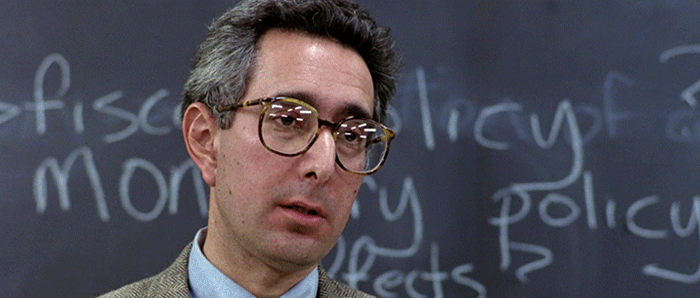I deliberately waited a few days to write about this, because I am a 30,000 ft. person. Immediately, many industry folks started jumping in and scrutinizing every line written in the announcement, advertisers started freaking out, and my DMs and inbox were flooded with “OMG WHAT IS HAPPENING.”

I’m not patting myself on the back by saying I didn’t freak out – it’s more experience at this point than me being really smart or having a crystal ball. Having been a paid search veteran for many years and living through tons of AdWords changes and announcements, I know by now that platforms go on. Perhaps in different incarnations than before, but that works in favor for good practitioners – those who can’t adapt, die out. Fine by me, we need quality, not quantity when it comes to strategic options of an advertising partner.
So, without further ado, here’s a summary of what I think:
Is it REALLY that big of a change?
For some pieces, yes, and others, not so much.
How it’s not a change: seriously, who is relying on organic Facebook reach anyone?

So, let’s not freak out on that front. I heard a lot of “See, they’re finally killing off organic reach!” Ok, so? You said “finally,” which indicates you knew it would happpen someday. If this is the nail in the coffin, and it’s not surprising, redirect the outrage into a better plan.
How it’s not a change: Zuck really isn’t jerking the wheel that far in another direction. He IS going back to the original intent of Facebook.
The purpose of it, at its core, has always been interaction. Yeah, I know, there’s all this other stuff nowadays, but seriously, even the ad model rewards interaction by giving an ad a Relevance Score. Is it really so surprising they want to favor quality over quantity? Especially as they ran out of News Feed inventory in the past couple years, they can’t just endlessly let the Feed get more and more of a slugfest for visibility. It just doesn’t make sense, and it cheapens the brand, which is likely to lose users.
I think it’s also been eye-opening for Facebook to realize they made it into uncharted and shark-infested waters they weren’t remotely prepared to handle with all of the election stuff, questionable news stories, etc. They started treading into the waters of a serious media powerhouse, and were ill-prepared to handle it. I’m sure this caused some soul-searching about what they want to be. To their credit, they are blazing a trail with no map, and it’s important for them to decide if it’s leading where they want. It seems that it wasn’t, and they are trying to balance the future with what is at their core.
How Will This Affect Marketing Plans?
This isn’t unique to Facebook – all over the internet, we are way, way too clogged with craptastic content.
Let’s face it, every time you open up your computer in the morning, this is gonna be your day:

It’s become clear that quality needs to reign supreme, and a kind of content Darwinism has to take place – you hear this in tactics from SEO to content creation in general.
Still, many places create a blog schedule they follow come hell or high water, which leads to a churn of content on automatic pilot that doesn’t really serve any purpose. Facebook is no different. I can’t count the number of places I’ve worked with that have a content calendar with a line item for Facebook that’s just regurgitating the same thing that they’re going to have on LinkedIn. Bad idea. Post less and be more thoughtful.
Facebook is trying to force brands to think this way more. They don’t want your crappy content. They want the good stuff. Why is that bad? They’re FORCING you to try and create stuff that is going to perform better for you.
This probably thwarts a lot of content calendars for months to come, but it opens up the opportunity for you to churn less and craft more.
It’s a reminder: your social media audiences are PEOPLE. Talk with them, not at them.
There Are Other Avenues
One of the things I encourage clients to do with their Facebook ads is to have the opportunity to capture the lead somewhere in their Facebook funnel. Even if the goal is ultimately a sale, try and make lead gen a part of the user journey. This puts you in the driver seat for remarketing and engagement efforts. Stop relying on Facebook Ads to do that for you automatically.
“Susan, you do Facebook advertising for clients, are you really suggesting they do less?” Well, little known fact: I also have a background in email marketing. I’m not blind to the need to have several levers going to create customer affinity. I’m suggesting they augment the Facebook efforts.
For example: get a chatbot going, and build your list for engagement there. Create engagement ads off people who have interacted with you on chat and keep them in the ad funnel. A lot of my conference talks in 2018 are going to be focused on strategies like this: focus on your funnel and nurturing it, vs. dumping money into endlessly casting a net for cold audiences.
What Does It Mean For Ads OMGGGUUYYYZZZ
Further freak outs of occurred based on how it might impact ads. People are freaking out about skyrocketing CPMs, more competition, less space…all of that may be true. Who knows? On the other hand, it may not change much – see first section about how organic reach has basically already been dead. I personally don’t think it’s going to cause a huge flood, because no one was heavily relying on organic at all anymore. Some industries might feel it more than others, but it’s not like organic was reaching 50% of users to begin with. It’s been pay-to-play for awhile.
And, again, if it did flood the market and phase out propped-up agencies who claim to do Facebook strategy but can’t hack it, I can’t say I’m sad about that.
“Susan, what are you going to do differently?”
Not a whole lot. Know why? Because you shouldn’t ever operate in a vacuum building your strategy around a media platform that will stay static – they don’t!

Plus, EVERY channel is saying quality over quantity with content (even though most of them don’t practice it yet), and Facebook has always prized engagement. They have become an incredibly powerful platform, which means everyone goes there, which means over-spewing of mediocre content. This change is smart on Facebook’s part, and it protects their brand and the user experience.
Got thoughts? Leave them below!
If you want to read more info, there’s a nice follow-up post by Loomer here.
